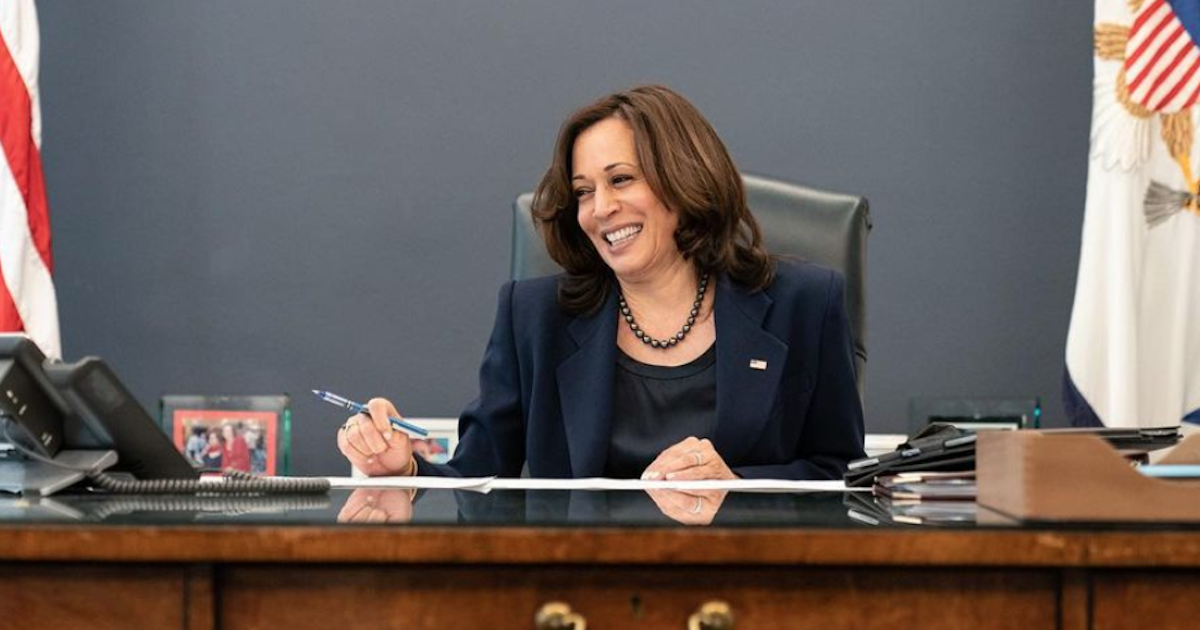Kamala Harris's Family Touched By Loss
- Vice President Kamala Harris lost her mom to colon cancer in 2009
- Her mother, Dr. Shyamala Gopalan Harris, was a cancer scientist herself & helped with groundbreaking research in the breast cancer field
- Harris spoke about the many barriers her mother, who came to the U.S. from India at age 19, had to overcome
Her mom, Dr. Shyamala Gopalan Harris, was diagnosed with colon cancer in 2008 — and passed away just a year later. In her heartfelt tribute, Harris said she misses her mom everyday — and reiterated the Biden administration’s dedication to advancing cancer research.
Read MoreView this post on Instagram“My mother, Shyamala Gopalan Harris, came to this country with a dream: to cure cancer. She became a breast cancer scientist and worked for decades in the lab to advance the fight against the deadly disease,” Harris wrote.
“It was a shock when she told us in 2008 that she herself was diagnosed with colon cancer — and a great sadness when she passed away a year later. I miss her every day. I know the President, First Lady, and so many Americans understand that loss.
“My mother wouldn’t want us to give up on her dream,” she continued. “[President Biden] and I believe we are closer to a cure than ever before. On this World Cancer Day, we are committed to supporting the scientists, researchers, and health care workers who devote their lives — as my mother did — to helping fight this disease. Together, we can put an end to cancer.”
Dr. Gopalan Harris’s Work
Dr. Gopalan Harris was a member of a team that discovered the hormone estrogen could bind to a receptor. Their breakthrough research, which was published in 1967, led to a greater understanding of breast cancer and how to go about treating it.
The vice president often pays tribute to her mother and her extraordinary work. The doctor came to the United States after graduating from the University of Delhi at age 19 with a dream of becoming a scientist.
She began attending the University of California at Berkeley in 1959, and later earned a Ph.D. in nutrition and endocrinology. She remained there during part of her career as a breast cancer researcher, and later worked at the University of Illinois and the University of Wisconsin as well.
On Mother’s Day last year, Harris applauded her mom for breaking down many barriers, not only as woman in the medical field, but as an immigrant.
“I’m the daughter of a mother who broke down all kind of barriers,” Harris wrote. “Shyamala Harris was no more than five feet tall, but if you ever met her you would think she was seven feet tall. She had such spirit and tenacity and I’m thankful every day to have been raised by her.”
How Common is Colon Cancer in the U.S.?
Colon cancer is one of the most common cancers in the United States to this day. The American Cancer Society estimates that there will be more that 104,000 cases of colon cancer diagnosed in the nation in 2021, and more than 45,000 cases of rectal cancer.
The rate that colon cancer is being diagnosed in the country has been steadily falling since the 1980s, however, due to more testing.
Dr. Heather Yeo & Dr. Zuri Murrell explain why colon cancer screening is crucial to prevention.
Although the disease can often go unnoticed until it is in later stages, screening recommendations have led to more cases being detected early, or prevented altogether.
“You should be screened for colon cancer, even if you have no family history,” Dr. Heather Yeo, a colorectal cancer surgeon at Weill-Cornell Medical Center, told SurvivorNet in a previous conversation.
“Once you have your initial screening colonoscopy, if there are no polyps and you have no high risk factors, usually once every 10 years is fine. Colon cancer is a slowly progressing cancer.
“If you have any family history of colon cancer, you should be screened about 10 years before your family member had colon cancer,” she added. This means if you had a close family member who was diagnosed with colon cancer at age 50, you should get screened at age 40.
For those who do not have an increased risk, current recommendations say colonoscopies should begin at age 45.
Learn more about SurvivorNet's rigorous medical review process.


